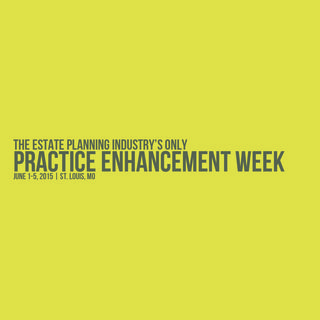As an estate planning attorney I come across many couples who do estate planning that have been married 30, 40, 50 or more years. A common question I ask is do you want to plan to protect your half of the assets from your spouse’s “new friend” after your passing. It usually gets a chuckle but is often as an important issue because each of us knows someone who lost a spouse and now has a “new friend”. Most couples are willing to address the issue because ultimately they want to ensure their “stuff” gets to their children or beneficiaries. Similarly, those in second marriages want to be able to provide for their current spouse without disinheriting their loved ones.
 It is important to accept our individual needs for companionship are essential to humanity and in no way does kindling a new friendship or romance after a loss of a spouse in anyway negate the love one had for a deceased spouse. Think of it as an “and” rather than an “or”. The question becomes who gets your half of the assets accumulated during your life, your beneficiaries or your surviving spouses, new friend? The greatest threat to your assets is if your health fails and the cost needed for care. Many couples leave assets to their spouse and “trust” the spouse will provide as they planned. The challenge occurs however, when the surviving spouse needs care and appoints their new friend or in the case of a second marriage the spouses children, as power of attorney. At that point, any hope of ensuring your stuff gets to your loved ones is greatly diminished.
It is important to accept our individual needs for companionship are essential to humanity and in no way does kindling a new friendship or romance after a loss of a spouse in anyway negate the love one had for a deceased spouse. Think of it as an “and” rather than an “or”. The question becomes who gets your half of the assets accumulated during your life, your beneficiaries or your surviving spouses, new friend? The greatest threat to your assets is if your health fails and the cost needed for care. Many couples leave assets to their spouse and “trust” the spouse will provide as they planned. The challenge occurs however, when the surviving spouse needs care and appoints their new friend or in the case of a second marriage the spouses children, as power of attorney. At that point, any hope of ensuring your stuff gets to your loved ones is greatly diminished.
Planning to protect your assets for your spouse, and from your spouse’s “new friend”, or in second marriages, ensuring your assets ultimately gets to your loved ones is a common goal both spouses agree on. Why? Because you don’t know which one’s going to die first so you want to ensure that no matter who does, the deceased spouse’s share is always protected for the surviving spouse, and from “new friends”, or the separate kids of the surviving second spouse. This planning is easily accomplished if you plan while you are alive and healthy, but becomes nearly impossible if you become incapacitated or die with it in place. We have all heard the horror stories of unintended beneficiaries getting all the assets after mom or dad dies. Don’t risk it, plan for it. It’s not complicated it just has to be planned for.
If you want to learn first hand what it's like to be a Lawyers With Purpose member, join us for our Estate & Elder Law Practice Enhancement Week in St. Louis, June 1st – 5th. Below is just some of what you'll get (and this is just Monday and Tuesday)! You can look at the full agenda and register here.
Asset Protection
- Recent Updates to Asset Protection and Medicaid-Compliant Strategies
- The New Asset Protection Strategies Dominating the Marketplace
- The Death of DAPT’s, FLP’s, GRATS, GRUTS, and Tax Planning, and What’s Replaced Them
- The Five Essential Trusts and Key Drafting Needs to Serve 99.7% of Clients
- The Power of Powers of Appointment, in the Right Places
- Four “Must Have” Drafting Considerations and Three “Most Forgotten” Powers in Trust
Medicaid
- Four Steps to Medicaid Eligibility for Any Client
- How to Calculate the “Breakeven” to Ensure the Proper Filing Date for the Shortest Penalty Period
- Medicaid Qualifying Annuities – Hidden Risks and How to Properly Disclose Them to Clients or Protect from Them
- The Seven Key Factors to Calculate any Medicaid Case in Seven Minutes (or Less)
- IRAs – Exemption Versus Taxes, How to Calculate if IRAs Should be Liquidated or Exempted in Medicaid and VA Cases
VA Benefits
- Meet the VA
- Service Connected Benefits (Veterans & Widows/Dependents)
- Non-Service Connected Benefits – Improved Pension, Housebound, Aid & Attendance
- Asset Eligibility
- Application Process
- Correct Forms
- Annual Reviews
- Appeals Process
- Representation and Marketing – Getting Veterans to March in Your Door
Register: http://retreat.lawyerswithpurpose.com
David J. Zumpano, Esq, CPA, Co-founder Lawyers With Purpose, Founder and Senior Partner of Estate Planning Law Center










